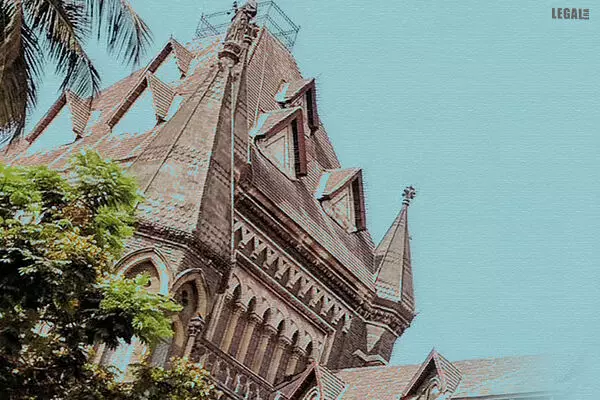- Home
- News
- Articles+
- Aerospace
- Agriculture
- Alternate Dispute Resolution
- Banking and Finance
- Bankruptcy
- Book Review
- Bribery & Corruption
- Commercial Litigation
- Competition Law
- Conference Reports
- Consumer Products
- Contract
- Corporate Governance
- Corporate Law
- Covid-19
- Cryptocurrency
- Cybersecurity
- Data Protection
- Defence
- Digital Economy
- E-commerce
- Employment Law
- Energy and Natural Resources
- Entertainment and Sports Law
- Environmental Law
- FDI
- Food and Beverage
- Health Care
- IBC Diaries
- Insurance Law
- Intellectual Property
- International Law
- Know the Law
- Labour Laws
- Litigation
- Litigation Funding
- Manufacturing
- Mergers & Acquisitions
- NFTs
- Privacy
- Private Equity
- Project Finance
- Real Estate
- Risk and Compliance
- Technology Media and Telecom
- Tributes
- Zoom In
- Take On Board
- In Focus
- Law & Policy and Regulation
- IP & Tech Era
- Viewpoint
- Arbitration & Mediation
- Tax
- Student Corner
- AI
- ESG
- Gaming
- Inclusion & Diversity
- Law Firms
- In-House
- Rankings
- E-Magazine
- Legal Era TV
- Events
- News
- Articles
- Aerospace
- Agriculture
- Alternate Dispute Resolution
- Banking and Finance
- Bankruptcy
- Book Review
- Bribery & Corruption
- Commercial Litigation
- Competition Law
- Conference Reports
- Consumer Products
- Contract
- Corporate Governance
- Corporate Law
- Covid-19
- Cryptocurrency
- Cybersecurity
- Data Protection
- Defence
- Digital Economy
- E-commerce
- Employment Law
- Energy and Natural Resources
- Entertainment and Sports Law
- Environmental Law
- FDI
- Food and Beverage
- Health Care
- IBC Diaries
- Insurance Law
- Intellectual Property
- International Law
- Know the Law
- Labour Laws
- Litigation
- Litigation Funding
- Manufacturing
- Mergers & Acquisitions
- NFTs
- Privacy
- Private Equity
- Project Finance
- Real Estate
- Risk and Compliance
- Technology Media and Telecom
- Tributes
- Zoom In
- Take On Board
- In Focus
- Law & Policy and Regulation
- IP & Tech Era
- Viewpoint
- Arbitration & Mediation
- Tax
- Student Corner
- AI
- ESG
- Gaming
- Inclusion & Diversity
- Law Firms
- In-House
- Rankings
- E-Magazine
- Legal Era TV
- Events
Bombay High Court provides clarity on 'Special Courts'

Bombay High Court provides clarity on 'Special Courts'
The judge highlights the importance of speedy trials
The Bombay High Court has ruled that the Court of the Additional Sessions Judge is not a 'Special Court' under the Insolvency and Bankruptcy Code (IBC). Therefore, it cannot try offences under IBC.
In a petition challenging the jurisdiction of the Court of the Additional Sessions Judge, Justice Sandeep K Shinde accepted the contentions of the petitioners and clarified that the jurisdiction to try offences under IBC lies only with the Court of the Metropolitan Magistrate or the Judicial Magistrate First Class established as a Special Court under the Companies Act, 2013 (amended in 2017).
The high court reasoned that it was only after the enactment of IBC in December 2016 that the Companies Act, which empowers the Central government to establish the Special Courts for the speedy trial of offences, was amended in 2017. It allowed the government to establish a Court of the Metropolitan Magistrate or the Judicial Magistrate First Class as a 'Special Court' to try offences not under the Companies Act.
Prior to the amendment, such courts were only authorized to try offences under the Companies Act that was punishable with imprisonment for less than two years and were not 'Special Courts.'
Drawing an inference from the chronology of amendments, the court stated that it was a clear mandate of the legislature that the 'Special Court' comprising a Sessions Judge or Additional Sessions Judge is to only try offences under the Companies Act, which carries a punishment of imprisonment of two years or more. The Special Court comprising a Metropolitan Magistrate or Judicial Magistrate First Class was to try "other offences."
The court also observed, "If the trials in offences under IBC were also to be tried by the Special Courts comprising a Sessions Judge or Additional Sessions Judge, it would frustrate the object of the speedy trial for which the Special Courts had been established."



